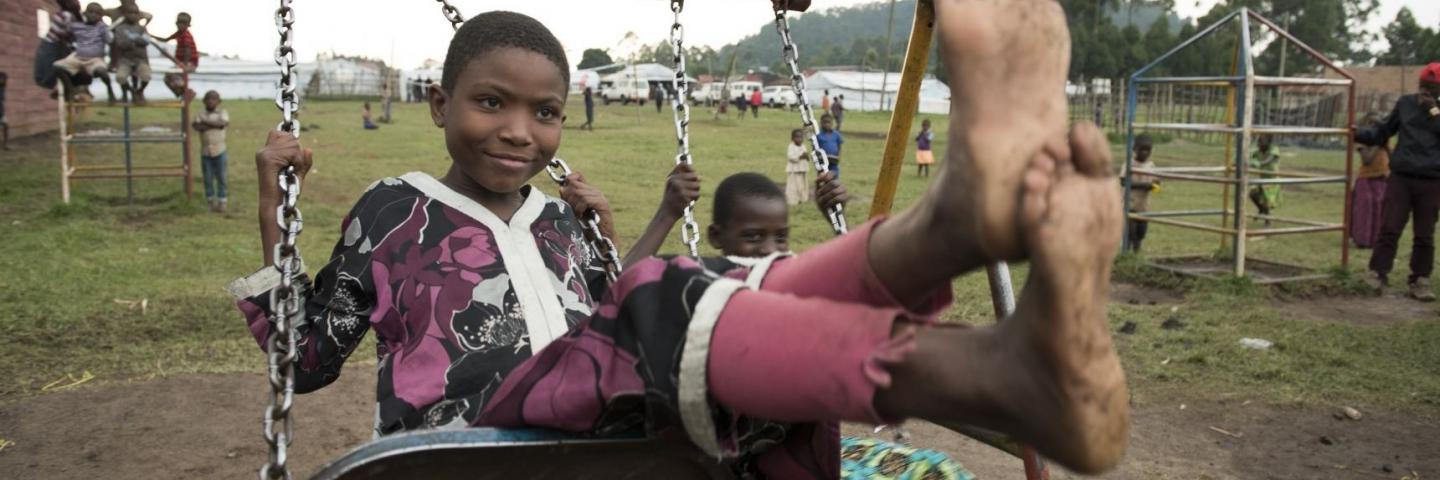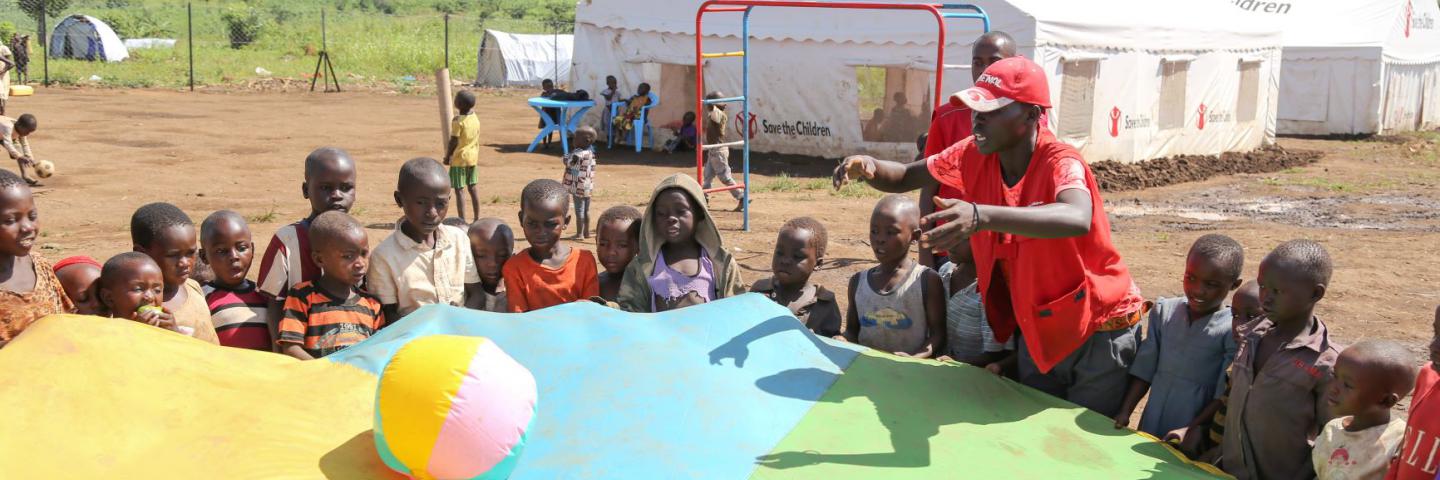

Every child has the right to be protected from violence and live free from fear, neglect, abuse and exploitation. Yet three quarters of children in Uganda experience some form of violence. Most children (68% of boys and 59% of girls) have experienced physical violence, while one in three girls and one in six boys suffer sexual abuse. The scars can last a lifetime and often result in mental health issues and psychological distress during adulthood.
Strengthening laws
Effective child protection needs strong laws and policies in place. In Uganda there are many positive steps taken on paper - for example there is a national strategy to end violence against children in school, and child marriage, corporal punishment and other forms of abuse are illegal. But in reality these laws are rarely enforced or resourced. Many people and officials are unaware of them. Perpetrators often go unpunished. Save the Children advocates for greater resourcing to implement and enforce these laws, and we are developing localised and child-friendly versions to make them more accessible to communities.
Stopping violence in schools
A child learns best when they feel safe and protected. Corporal punishment is illegal in Uganda but is still widely practiced - 90 percent of children say they first experienced physical violence at school from a teacher. Many teachers and parents think violence is necessary to instil discipline, but it has a hugely negative impact on learning and a child's wellbeing.
We work with teachers and schools to promote alternative positive discipline methods built on mutual respect and participation, and set up children's councils to come up with more effective and appropriate disciplinary measures. We also work with schools, officials and the local communities to monitor and address other forms of violence in schools, such as sexual abuse and bullying.
READ: We must end corporal punishment once and for all
Protection for children affected by conflict
Uganda hosts almost 1.4 million refugees and 60 percent are children. Most have fled brutal conflicts, and many have witnessed terrible violence or lost friends and family. We run Child-Friendly Spaces (CFS) which provide them with a safe place to play, learn and socialise with new friends, under the supervision of specialist caregivers. They can also access other services such as mental health and psychosocial support. Our teams of caseworkers identify the most vulnerable children and make sure they get the support they need – such as children who arrive alone or separated from their parents, orphans, children with disabilities or those in need of counselling.

Tackling child marriage and teenage pregnancy
Forty percent of girls in Uganda are married before they turn 18. One in four teenage girls over 15 have already given birth or are pregnant. This has a devastating impact on their future – it forces children out of education, traps them in a cycle of poverty, and endangers the lives of young mothers and their babies.
We work with communities to change attitudes and practices towards child marriage. We support adolescents to know their rights and the laws that protect them, and to get access to sexual and reproductive health information. We lobby officials to try and get laws enforced. We work with schools to improve girls' access to education, as staying in school longer can reduce the chance of girls becoming pregnant or married.
READ: Youth campaign for an end to child marriage
Ending child labour
More than 2 million children in Uganda are reportedly engaged in child labour – most in agriculture or mining. The work is physically and mentally dangerous, and forces children out of education. We are working with businesses, communities and authorities to end the practice - by holding companies to account for exploiting children, and urging companies to sign and adhere to the global Child Rights and Business Principles, which we developed with UNICEF and the UN Global Compact.
READ: Children are being exploited to work on farms and mines in Uganda
Strengthening child protection systems
An effective and well-funded national child protection system is vital to ensure that we can prevent and respond to violence against children. But in Uganda the system is fragmented and weak – the referral system is poorly coordinated, services for survivors are scarce, children are not empowered to speak out and report abuse, and traditional beliefs often perpetuate certain forms of violence. Most cases are not reported, and only 32 percent of those reported result in arrests.
We advocate for greater investment in strengthening these systems at national and district level; support government-led initiatives such as the 24-hour "Sauti 116" toll-free national child helpline; and work with schools to strengthen reporting and response mechanisms.
Joining Forces
To end violence against children in Uganda we must work together. The global Joining Forces coalition brings together six leading child rights organisations – Save the Children, Child Fund, Plan International, SOS Children's Villages, Terre des Hommes, and World Vision. In Uganda the coalition is campaigning to end corporal punishment, and supporting children to develop their own solutions to end violence in schools.